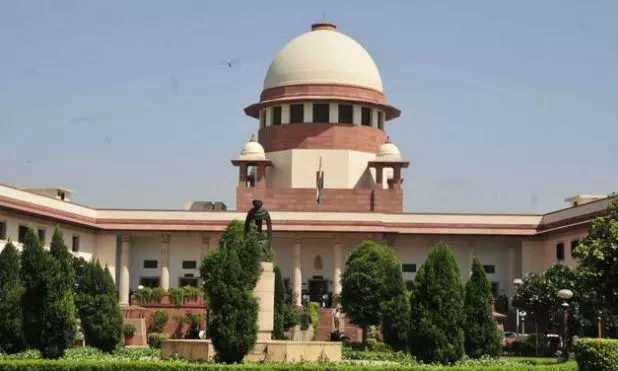AA Edit | End to bulldozer justice: Govts pulled up by SC

It could perhaps be one of the harshest indictments of the executive by the judiciary when the Supreme Court on Wednesday ordered the government to call off the new-found practice of demolishing homes with bulldozers, delivering extra-judicial punishment to people accused of crimes. The apex court has taken a wholesome view of the puppy show that has of late become popular among the proponents of summary justice and held that it can prevail only in a lawless land and that India, being a constitutional democracy founded on rule of law, cannot accept it. Unauthorised homes can be demolished but after following the due process for which the apex court has issued comprehensive guidelines, but it has said a firm “no” to meting it out as punishment for alleged crimes.
What has come to be known later as 'bulldozer raj', the practice of razing the homes of people whom the government accuses of committing crimes using bulldozers was introduced first in recent times by the BJP government led by Yogi Adityanath in Uttar Pradesh. The monk-politician’s method had takers in other states, too. The bulldozers razed hundreds of homes across states which included Madhya Pradesh, Haryana and Delhi, rendering thousands homeless. BJP leaders had even boasted of the “bulldozer raj” as an achievement. But the Super Court would have none of it. These excesses are “high-handed and arbitrary” and need to be dealt with the “heavy hand of the law”, the court observed.
The biggest takeaway of the landmark judgement is that it has reminded the executive branch of the government to limit itself to its domain and not encroach upon the judiciary’s. Separation powers is a constitutional construct, it reminded the powers-that-be. It is a rare instance where the Supreme Court looked into the plight of the victims of executive action and chose to remind society of what is right and what is wrong.
It was Justice Krishna Iyer who advocated a liberal interpretation of the laws and made the judiciary work for the people; his words, “every saint has a past and every sinner has a future”, are etched in gold in the annals of Indian jurisprudence. A reflection of such a concern is seen in the judgement which underscored the importance of home by quoting a Hindi couplet and a celebrated observation by Lord Denning. After inviting the attention of all the stakeholders of the republic to the “chilling” sight of a bulldozer demolishing a building, rendering children and aged persons homeless overnight, the Supreme Court invoked Article 142 of the Constitution and let it be known to all, and the mighty Indian state in particular, that the homes of its citizens are inviolable. And those who breach it will be hauled up for contempt of court and made to pay for their crime.
The guidelines the court has issued for demolishing structures on public property are both exhaustive and comprehensive. No demolition should be carried out without a prior showcause notice returnable in a minimum period of 15 days and overzealous officials have been reminded that the heavens would not fall on them if they stayed their hands for some time. The notice shall be served by a registered post and a copy should be sent to the executive magistrate so that no tinkering on dates is made possible.
The Constitution is meant to come in between the citizen and the state’s excesses, and it has done so, again. It’s now for the bulldozer-happy politician to fall in line.

